The Ōtepoti Dunedin multi-level training in 2022 involves participating in a year-long programme consisting of experiential workshops, reading, writing, peer practise group and supervision. The training will cover all the psychodrama specialties of psychodrama, role training, sociodrama and sociometry. As group members, you will have the opportunity to learn the psychodrama method while exploring issues such as social and personal relationships, your families of origin, work issues and finding your own creative potential. Psychodrama methods are effective, empowering, and fun.
We will be building a cohesive working group in a supportive, positive environment. The purpose of the teaching is to develop a greater flexibility in functioning, a greater perceptiveness and a wider range of functioning in the here and now situation. The training will introduce you to the core elements of the psychodrama method, then strengthen your abilities as directors, auxiliaries and group members. Trainees are encouraged to write short papers in areas of interest applicable to their work.
You can expect to stretch yourselves and to identify and get involved with the perceptions, and values, of people who challenge you, especially in your professional capacity.
There will be workshops during the year focused on; applications of psychodrama, concretisation, working one to one; the spontaneity theory of childhood development, play, developmentally appropriate interventions, assessment; ethics, complications/challenges with working online; role training and professional identity. The Marae Based Intensive Psychodrama Workshop (Karitane) training will be led by five trainers from across the country.
Psychodrama methods are effective, empowering, and fun. Psychodrama was created early in the twentieth century by J. L. Moreno and has been continually evolved and developed since then as a method that emphasises action, rather than talk – because people learn through action and through their interaction with others. Since its inception psychodrama has had a significant impact on psychotherapy, group psychotherapy and professional training. Psychodrama has a strong theoretical foundation and philosophy and uses many techniques aimed at deepening emotional expression, building cognitive insights and developing roles.
Dates
- Zoom session 12th March. 10:00 AM – 12:00 PM The focus of this will be on self-presentation and your warm up for the year. (2hrs) Sara Crane
- Zoom session 2nd April. 10:00 AM – 12:00 PM You will present the impact of reading and writing on your development. (2hrs) Sara Crane
- Spontaneity Training 14 & 15 May. Saturday 10:00 AM – 4:00 PM Sunday 10:00 AM – 4:00 PM (12hrs). Sara Crane, Judith McDonald
- Ethics and Supervision 18 & 19 June. Saturday: 10:00 – 4:00 PM. Sunday: 10:00 AM to 4:00 PM (12hrs). Hamish Brown, Maria Snegirev
- Role Training 6 & 7 August. Saturday. 10:00 AM – 4:00 PM Sunday 10:00 AM – 4:00 PM (12hrs). Judith McDonald, Maria Snegirev
- Marae Based Intensive Psychodrama Workshop (Karitane) 21- 25 September (30hrs) Begins at 6:00 pm Wednesday 21 September. Finishes at 3:00 pm Sunday 25 September. Sara Crane, Simon Gurnsey, Hamish Brown, Judith McDonald, Maria Snegirev
- Professional Identity. 18, 19 & 20 November. Friday: 6.30 – 9:00 PM. Saturday 10:00 AM – 4:00 PM Sunday 10:00 AM – 4:00 PM (14.5hrs). Sara Crane, Judith McDonald, Maria Snegirev
Enrol for the TIA Multi-Level Training Group
Training in Action
Workshop Code: TIA-2022A
Venue
SVD, Level 2, 31 Stafford Street, Dunedin
Fee
- Full fee
$2,720.00$2,220.00 - The CITP offers a discount of $200.00 for early enrolment (see the enrolment page for details)
Total training hours: 112 94 hours
Trainers and Group Leaders
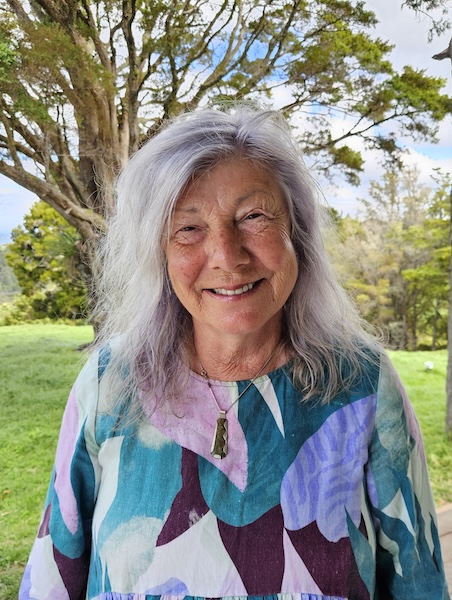
Sara Crane
PANZ Director of Training. Ōtautahi and Ōtepoti Campuses
Sara Crane is an AANZPA Trainer Educator Practitioner (TEP) and Psychodramatist. She is the Director of Training for PANZ, Psychodrama Aotearoa New Zealand and works as a visiting trainer in Brisbane. Sara’s love of psychodrama is grounded in her belief in the transformative power of spontaneity and human connection.
Sara has worked across multiple regions and sectors, giving her a rich understanding of the varied applications of psychodrama. She supports individuals and groups in navigating complex relational issues, including a focus on family dynamics and extensive work with children in the context of their Whanau. She was involved in setting up START, which was formed to provide clinical services to people who had survived sexual trauma. She has worked at a systemic organisational level, including supervising teams within the NZ Ministry of Justice and attending to children and families in the legal system. She enjoys working with complex family systems, supporting them to mediate conflicts and achieve healthier, more supportive relationships.
Sara is deeply concerned about the state of our changing world and the pressure and challenges for our communities. As a trainer, she seeks to support trainees to strengthen their abilities and develop their professional capacities to make a difference.
As a member of AANZPA, she has taken on several roles (President, Journal Editor) and appreciates the opportunities to participate in conferences and the ongoing life of the association. Sara is a Registered Psychotherapist (PBANZ) with an Advanced Clinical Practice Certificate.
For her solace, Sara loves to write flash fiction, finding joy in the brevity and emotional depth of the form. Her dogs, cats and llamas continue to be beloved companions in both her outdoor adventures and some of her professional work. Psychodrama has enabled her to bring the threads of her life together and pass on the complexities and wisdom of the method.
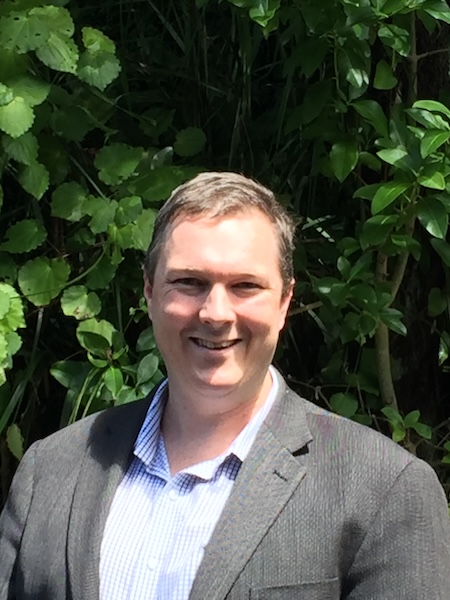
Hamish Brown
Tāmaki Makaurau Auckland Campus
Hamish is a Psychodramatist and Trainer Educator Practitioner (TEP). He delivers training in Aotearoa New Zealand through the Auckland, Christchurch and Dunedin Campuses of PANZ.
Hamish is a psychotherapist who has worked in private practice since 2002. He sees a wide range of clients including individuals, couples and groups. He was appointed to Te Poari o ngā Kaihaumanu Hinengaro o Aotearoa | Psychotherapists Board of Aotearoa New Zealand (PBANZ) in 2016 and served as the PBANZ Chair between 2020 and 2023.
Hamish has been an organisational consultant since 1997. He has worked in several countries on projects including training people in group facilitation, and leadership and has led large-scale projects oriented to producing systemic and organisational change. He co-founded Phoenix Facilitation in 2008 to provide organisational consulting based on Moreno's social theories.
Hamish holds a Post Graduate Diploma in Psychoanalytic Psychotherapy from the Auckland University of Technology (AUT) and a Master’s Degree in Dispute Resolution from Massey University,
Hamish is the father of two grown-up daughters. He grew up on a farm near Kaikohe in Te Tai Tokerau and is now based in West Auckland. In his spare time, he loves playing contract bridge.
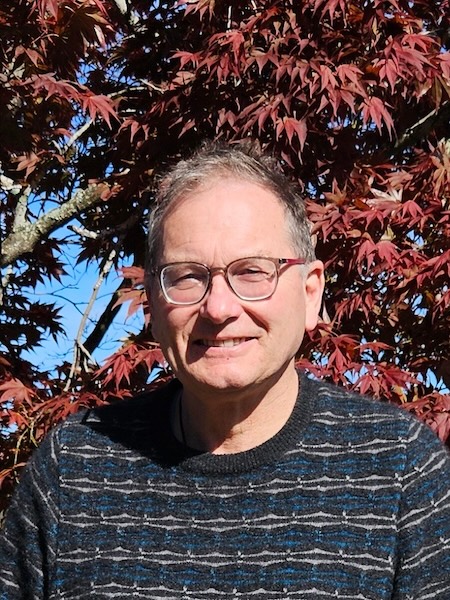
Simon Gurnsey
PANZ Ōtautahi Christchurch Campus
Simon Gurnsey is an AANZPA Sociometrist and Trainer Educator Practitioner in training (TEPit). He provides training in the PANZ Ōtautahi Christchurch and Ōtepoti Dunedin Campuses. He has held various leadership roles within the Australian and Aotearoa New Zealand Psychodrama Association (AANZPA), including Treasurer on the Executive Committee and served as the AANZPA Membership Administrator for many years.
Simon keeps his creativity flowing through his passion for building things out of wood and earth. Pictures of his new woodshed are available! He enjoys spending time at the home he shares with Sara Crane and a large number of domestic animals.
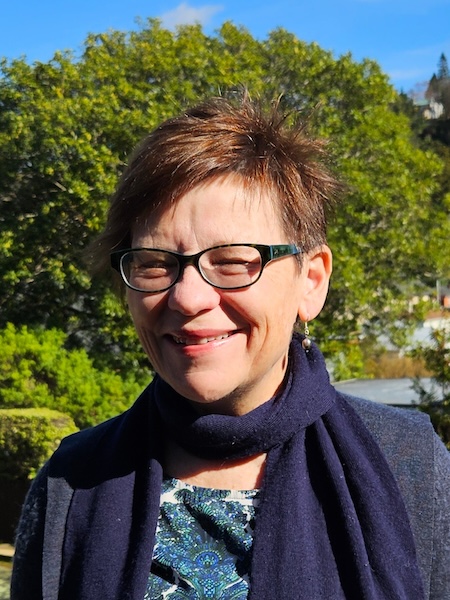
Judith McDonald
PANZ Ōtepoti Dunedin Campus
Judith is a Psychodramatist and and Trainer Educator Practitioner in training (TEPit) who works in private practice as a Registered Psychotherapist. Her pathway to attaining her interim psychotherapy registration was by qualifying as a Psychodramatist. She enjoys walking, reading, semi-occasional gardening and getting away for weekends and holidays with her family and dog in their house bus.
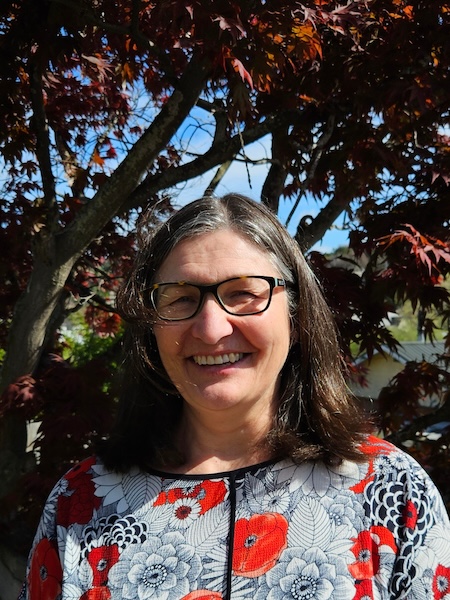
Maria Snegirev
PANZ Ōtepoti Dunedin Campus
Maria is a Psychodramatist and Trainer Educator Practitioner in training (TEPit), a Registered Psychotherapist and experienced group facilitator. She has been a member of AANZPA since about 2010 and has held various roles on the committee of the Otago branch.
Maria studied at Otago and has a B.A. in Russian Language and Literature, and a Diploma in Teaching. She has 20 years experience in leading Non-Violence programmes and has completed level 1 of Imago training.
Maria’s training journey began with her experiences in teaching children. This grew into a commitment to social justice which has been most strongly expressed in her work at Stopping Violence Dunedin. Her current focus is on expanding the range of her clinical experience by building up her private practice.
Maria’s interesting surname comes from her Russian parentage. She is the daughter of refugees who settled in Southland in the 1960s. This experience has created a life long interest in the transmission of language and culture. An interest in language is shared by her husband Andrew. They both thought very carefully when choosing the names of their two children, who occasionally forgive them.
Maria is passionate about gardening, even the weeds fascinate her! Other outlets for her creativity are; creating with fabrics, mosaics and more recently, macrame. She is currently obsessed with transforming a steep wasteland into a garden with veggies, flowers, native plants, and maybe even a hive of bees
